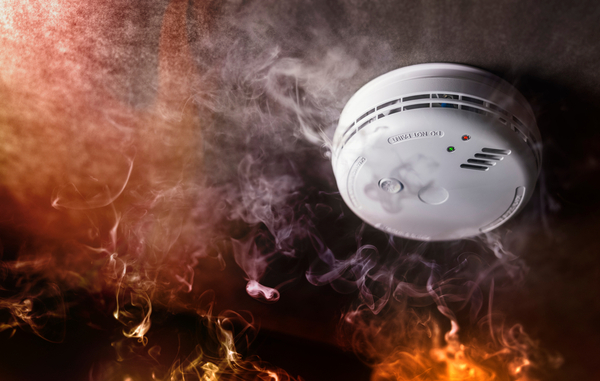News

Inventories to become key as fire rules tighten further - claim
Friday 5th May 2023
A trade body says inventories are set to play an increasingly important role in the private rental sector as fire regulations become stricter.
The Regulatory Reform (Fire Safety) Order 2005 requires landlords to “eliminate or reduce the risk of fire as far as is reasonably practical” while the Smoke and Carbon Monoxide Alarm (Amendment) Regulations 2022 stipulate that all landlords must make sure there’s at least one smoke alarm on each storey of their home where there is a room used as living accommodation. They must also make sure that there’s a carbon monoxide detector in any room which has a fixed combustion appliance.
Daniel Evans, chairman of the Association of Independent Inventory Clerks, says that with fire and rescue services attending no fewer than 33,390 domestic fires last year in Britain, safety protocols at check-in and in-tenancy monitoring can potentially save lives.
He comments: “As far as fire safety is concerned, there are two things at play for landlords. Obviously, there is the minimum compliance checks required by legislation. But there are also additional measures that can be taken to further reduce the risk of fire and keep tenants safe. And the inventory process is the ideal opportunity to check things out.
“In practice the CO detector needs to be put in any room which houses a gas boiler, coal fire or wood burning stove. It doesn't apply to gas cookers, but it’s a good idea to have a detector close to the cooker anyway. Again, going beyond the regulations, it’s good practice to install a heat detector in the kitchen. This won’t go off if someone burns the toast, but it will alert tenants to an actual fire.”
Evans says wood burners must adhere to local authority rules applying to that location, and any installed after 2011 will need an installation certificate, and landlords should tell their insurer.
Recommended alarms are compliant with British Standards BS 5839-6 – it will usually say so on the packaging. They can be mains-powered or battery-powered; new ‘sealed for life’ do not allow batteries to be removed and should last around 10 years.
The AIIC says alarms must be tested at the start of each new tenancy and landlords are responsible for repairing or replacing if there are faults.
Evans continues: “All of this can be done at inventory stage and It’s a good idea to do this in front of the tenants and keep written records which can be signed by all parties and can then be made part of the inventory. Considerate landlords should provide sturdy step-stools, or a safe stepladder if there are high ceilings, to test and switch off ringing alarms.”
The same rules cover unlicensed HMOs but if the HMO in question requires a licence, there may be extra requirements. There are other rules affecting HMOs including fire doors and emergency lighting.
The rules apply to soft furnishings supplied by landlords but not to tenants’ own possessions. Sofas and covers supplied with them must have a manufacturer's label stating their fire resistance.

